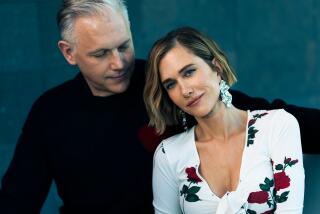Ready for a New Beginning After a Career of Endings
Sue Winn said goodbye last week, but, then, she’s done that before. In fact, she’s done more than her share.
To make sense of that, we have to go back when she was a girl growing up in Illinois in the ‘40s and ‘50s, and the heroine in her life was her mother, marching off to work every day in a nurse’s uniform. What stories her mother brought back home! To little Sue, tales of taking care of sick people were exhilarating and inspiring. She decided that she, too, would be a nurse.
And she did become one. Then, early in her career, while still in her 20s, she made an unusual discovery: “What I found was that when patients were told they had a terminal illness, there were some doctors and nurses who would avoid the patient,” she recalls. “If the doctor said there was nothing more that medicine could do for them, they would kind of back off in those days. This was before hospices got into it. Patients were put down at the end of the hall. Some nurses wouldn’t go see them. They didn’t want to take care of them. They didn’t want them to die.”
Winn also noticed that people, even medical professionals, avoided using “die.” Instead, the patient “expired.” Or they had a coronary vascular “accident.”
One of her first patients was an elderly man with Parkinson’s disease. “I was with him when he just laid back and died,” she says. “I remember it as a calm, peaceful, holy experience, in a way. What I saw was that his face went from that Parkinson’s mask to that of peace. If there’s a moment I remember, it was that spiritual, holy experience and the look that man had and his son saying, ‘That’s the first time I’ve seen a smile on Dad’s face in 15 years.’ That was moving to me. It wasn’t frightening. From then on, if there was a patient who was dying or imminently dying, I would ask to be assigned to that person.”
That’s the short version of what led Winn first to a hospice center and then, in 1989, to Hoag Memorial Hospital Presbyterian in Newport Beach. When she retired last week from the hospital’s cancer center, she ended a career that has centered largely around either talking to people who knew they were going to die or being with them and relatives as death neared.
To many of us, it would be a job of unremitting gloominess. How did she keep from becoming an emotional basket case? “It’s the heroin,” she says, deadpan, before turning serious. “People have asked me that over the years. I have a very loving family,” she says, pausing, “and there have been times with certain families that I’ve had to grieve, and I have done that.”
She recalls a dying man in his late 30s who wanted a final conversation with his daughters, ages 3 and 5. Their mother wanted Winn to take the girls to their father, and the three of them walked that long hallway to the bed where the girls’ sedated father lay dying.
Winn says she told the girls, “This is what he’s going to look like. He’s going to be kind of sleepy, but he’s going to hear everything you say, so just get up on the bed with him, because it’s not going to hurt him. And I walked with them, and I said, ‘God, I don’t think I can do this.’ ”
She mustered all the spiritual strength she could while in that room. “I was there physically but in all honesty, I looked out the window and just beamed my soul over to Catalina and sat on the pier and watched people there. Sometimes, in a way, you just have to distance yourself.”
In sum, though, the career humbled her. “It was a privilege to be with people at very important times in their lives. It was a privilege to share with a person intimately the feelings they had. And a privilege to be able to reduce their stress in a very catastrophic situation. There hasn’t been a day when I haven’t left this building, gotten in my car and driven up PCH [to her home in Huntington Beach] and been able to say that I hadn’t made a difference in a person’s life.”
At 53 now--prematurely, by most career reckoning--she is walking away.
In the last year, her mother died. The last of her and her husband’s four children left home. They had their first grandchild. A colleague’s father died suddenly. All around her, Winn saw signs that life speeds by and, as always, she had daily reminders from her patients that it can be shorter than we’d hoped.
Her resignation letter put it like this: “I’m deciding to leave a career I love so much to be with a husband I love even more.”
Married 18 years to her second husband (her first died after 14 years of marriage), Winn says their plans are to broaden her previous travel experience, which she swears consists solely of trips to Vancouver and Tijuana. She has no plans to work again.
Winn leaves behind a montage of faces and families, some cloaked in fear, others wearing masks of bravado that eventually fell off as the reality of their mortality overwhelmed all else.
“My memories are of the intimacy and the courage that I’ve seen in these people who lost their health, worked hard to regain it back . . . and some who haven’t.”
Still, no sadness in leaving? she is asked.
“No,” she says, “it’s more of a peace.”
Dana Parsons’ column appears Wednesday, Friday and Sunday. Readers may reach Parsons by writing to him at The Times Orange County Edition, 1375 Sunflower Ave., Costa Mesa, CA 92626, or calling (714) 966-7821.


